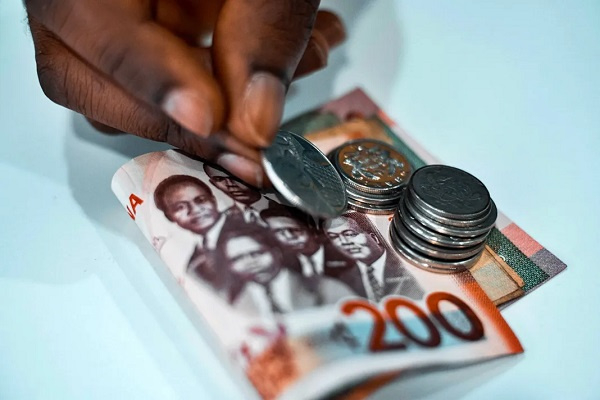Aiming for GH₵5 per USD by September 2025 – A Critical Analysis

The Ghanaian cedi (GHS) has been on a challenging trajectory over the past decade, with significant depreciation against major currencies, particularly the US dollar (USD). From approximately GH₵4 to the dollar in 2016, the exchange rate has escalated to nearly GH₵14 per USD by early 2025, marking a 250% depreciation over eight years . This trend has led to increased inflation, reduced purchasing power, and heightened public debt.Ghana National AssociationThe Business & Financial Times+1allAfrica.com+1
Current Exchange Rate Forecasts: GH₵5 per USD Unlikely
Forecasts for the USD/GHS exchange rate in September 2025 suggest a range between GH₵15.30 and GH₵15.36 . These projections indicate a continued depreciation of the cedi, making a drop to GH₵5 per USD highly improbable within the given timeframe.Walletinvestor.com+2Mid Forex+2CoinCodex+2The Business & Financial Times
Factors Influencing the Cedi’s Depreciation
Several key factors contribute to the persistent depreciation of the cedi:
-
High Inflation Rates: As of early 2025, Ghana’s inflation rate remains elevated, driven by rising costs of essential goods and services. This erodes the real value of the cedi, prompting increased demand for foreign currencies .The Business & Financial Times
-
Fiscal Deficits and Rising Public Debt: The government’s fiscal deficits and escalating public debt, particularly external debt denominated in foreign currencies, exacerbate the demand for foreign exchange to service these obligations .allAfrica.com
-
Trade Imbalance: Ghana’s reliance on imports for essential goods, coupled with challenges in the export sector, leads to a trade imbalance that increases the demand for foreign currencies, further pressuring the cedi.The Business & Financial Times
-
Low Foreign Exchange Reserves: Insufficient foreign exchange reserves limit the Bank of Ghana’s ability to intervene in the forex market to stabilize the cedi, contributing to its depreciation .The Business & Financial Times
-
Speculative Activities: Market speculation on the future value of the cedi can lead to increased selling of the currency, exacerbating its depreciation .The Business & Financial Times+13News+1
-
External Economic Shocks: Global economic uncertainties, such as changes in US Federal Reserve policies and fluctuations in commodity prices, can influence investor confidence and capital flows, impacting the cedi’s value .The Business & Financial Times
Potential Strategies for Stabilization
To address the challenges facing the cedi, several strategies could be considered:
-
Enhancing Fiscal Discipline: Implementing measures to reduce fiscal deficits and manage public debt can alleviate pressure on the cedi.
-
Boosting Export Competitiveness: Diversifying and enhancing the competitiveness of exports can increase foreign exchange earnings, supporting the cedi’s value.The Business & Financial Times
-
Strengthening Foreign Exchange Reserves: Building up foreign exchange reserves can provide the Bank of Ghana with the capacity to intervene in the forex market to stabilize the cedi.The Business & Financial Times
-
Encouraging Domestic Production: Promoting domestic production of goods can reduce reliance on imports, decreasing the demand for foreign currencies.
-
Implementing Inflation Control Measures: Adopting policies to control inflation can help maintain the real value of the cedi.The Business & Financial Times
Conclusion
While the aspiration for the cedi to reach GH₵5 per USD by September 2025 reflects a desire for currency stability, current economic indicators and forecasts suggest that such a target is unlikely. Addressing the underlying factors contributing to the cedi’s depreciation through comprehensive economic reforms is essential for achieving a more stable and resilient currency in the future.
Source: Thepressradio.com| Ogyem Solomon





